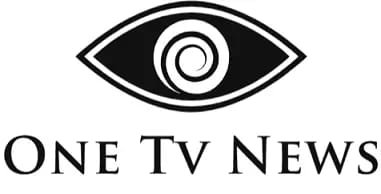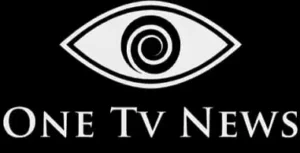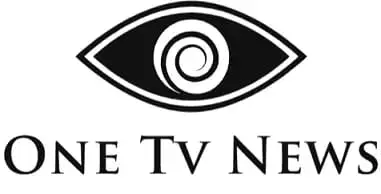Excuse for Sin Worse than Sin?
Among actors, Sohail Asghar and Qaiser Naqvi have been my friends since the pursuit of knowledge, and later, through Khayam Sarhadi, I became friends with Jamil Fakhri, who proved to be closer than Khayam. It’s a long time ago when Fakhri, while hanging out at my home, said, “Doctor, I have to go for a rehearsal; let’s head to Alhamra together, and later we’ll hang out.” He went inside the hall, knowing I wouldn’t just be bored watching the rehearsal but would also get frustrated with the double-meaning dialogues. So, he left me in the lobby with Irfan Khoosat. Thinking Khoosat was my senior, I asked him why theater was falling into decline and why they resorted to double entendre, commonly referred to as “jaghat baazi.” He replied, “It’s the public demand.”
My stance was that a good playwright should define public demand, not write based on it. Following public demand is commercialism; creating public demand is essential for the promotion of literature and art and the refinement of public mentality. Anyway, Fakhri returned, and we left.
Why do I recall this now? A new program on Pakistan’s channels, introduced by Aftab Iqbal, is called “Khabarnak” (News Is Funny) (a relatively suitable program which was their first of its kind). In this program, he showcased his knowledge while involving three or four comedic actors, who, of course, recited phrases like “Plastic Da Bandar” (Plastic Monkey) and “Tera Phuppha Lagta Hoon” (I Look Like Your Uncle). This trend gained momentum, and now the program has become infected by this epidemic.
In all these programs, the level of humor is reduced to buffoonery. It’s true that “jaghat baazi” has been part of Punjabi culture, but in the old days, when there weren’t many channels, the entertainers who came to weddings or other events would either do political jokes or poke fun at the groom and his relatives. They didn’t require much diversity. To create variety in programs broadcasted on channels, a lot is said that falls below the humor threshold.
In Europe, especially Russia, the level of humor is significantly elevated, where the art of satire holds a very esteemed position in theater and television. It’s not that there is no “jaghat baazi” in the West, but if a comedian like that is present in humorous programs, there will be serious actors three to one. I made this statement as an example of proportion. In contrast, our shows are dominated by “jaghat baz.”
Now, to the main point. Yesterday, I randomly switched to the Jio channel and found the program “Khabarnak” airing. When Ayesha Jahanzaib mentioned Franz Kafka, my ears perked up. Upon seeing the “artists” mocking him, I posted on social media, “I accidentally tuned into ‘Khabarnak’ on TV, where they are ridiculing Franz Kafka’s story ‘Metamorphosis.’ This is ridiculous, he is being portrayed as a bizarre and cursed writer.”
I had no idea who was writing the program. Our friend Zafar Imran tagged this post to Zeeshan Hussain, the producer at Jio and a good writer. I learned that he was responsible for introducing Kafka to the public. In his response, he wrote, “You all are doing the same thing to this excellent segment that was done to Manto regarding the issue of obscenity. Perhaps some people don’t grasp the concept of ‘curse’ in Kafka’s stories, which many esteemed critics have identified as the natural curse of life. Or perhaps our mindset has become that we arbitrarily become champions of a theory. Whoever began watching this segment made a judgment in the first two minutes of seeing the humor, thinking, ‘Oh, Kafka has been wronged,’ and whoever listened probably doesn’t even know the ‘K’ of Kafka and started disparaging the program. Kafka, Elbi, Dostoevsky, Pushkin, Chekhov, Gorky, Maupassant, Flaubert, Henry, Tolstoy… I have opened my eyes to these writers, dear sir. Rest assured, nothing will happen to Kafka. Four people will read his stories and novels. Like you, they may not deny the curse of life racing through his stories. Watch the entire segment and then form an opinion. Understand humor and comedy. I’m beginning to get annoyed with the self-appointed moralists and literary envoys, meaning there will be money if humor takes precedence. Creating humor about Kafka or relating Kafka to today is not considered in humorous programs. In other comedy shows, they create humor from a two-handed disabled person itching their butt; there, you all burst into laughter, and when it comes to Kafka, you become agitated. First, watch the whole segment.”
Leaving aside their tone and inappropriate words, the matter is simply that an author like Franz Kafka is not one that finds a place in common people’s hearts. In Russia, the number of book readers is still the highest in the world, yet few read Kafka, and even among those who have read him, most find him peculiar. Our kind friend Zeeshan Hussain mentioned many authors, but he didn’t mention Jean-Paul Sartre, André Gide, Ionesco, Albert Camus, Alberto Moravia, who, because of existentialism, are closest to Kafka’s feeling of absurdity in life. The sense of absurdity is felt by very few.
Franz Kafka’s introduction is more appropriate in a serious or literary program. Generally, among readers, there’s no need to introduce Kafka because readers are already seekers of literature and tend to find classic writers themselves.







